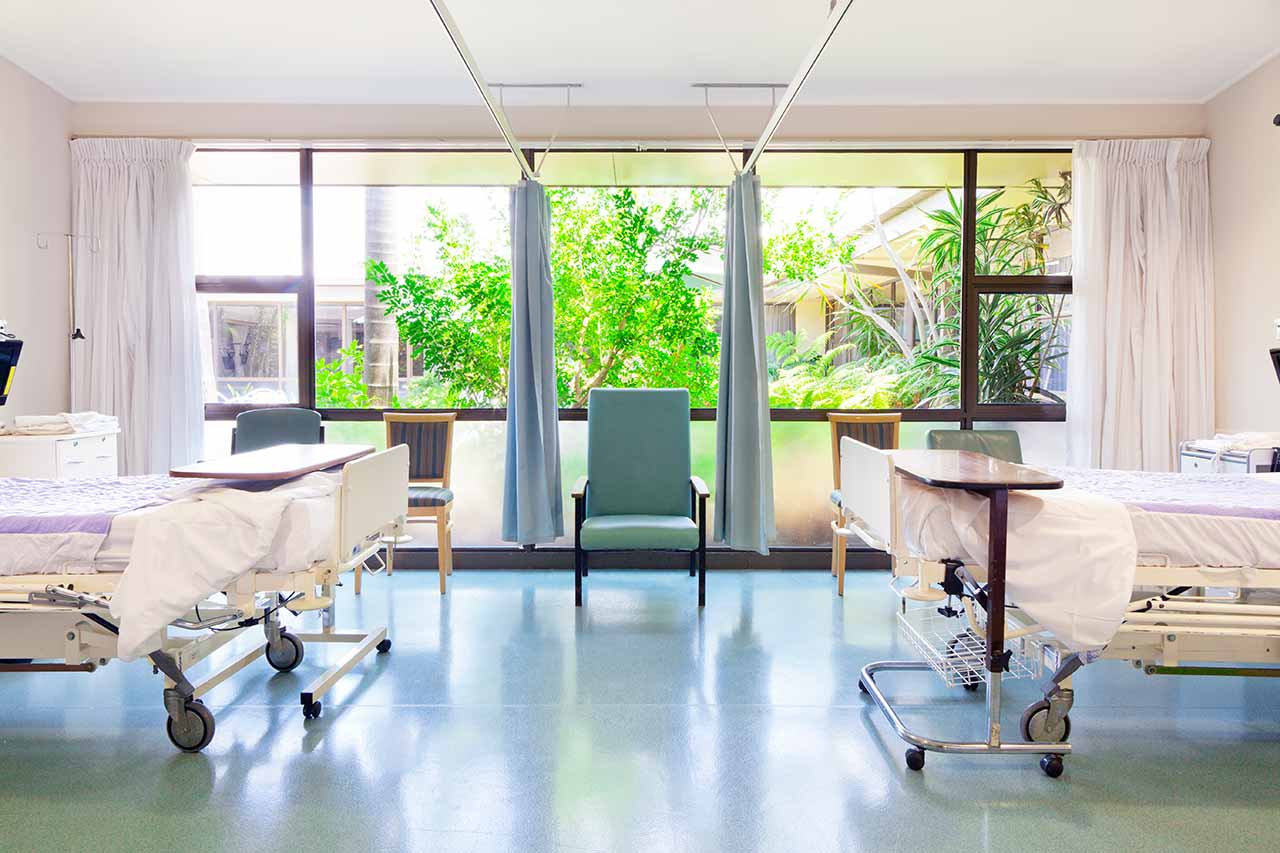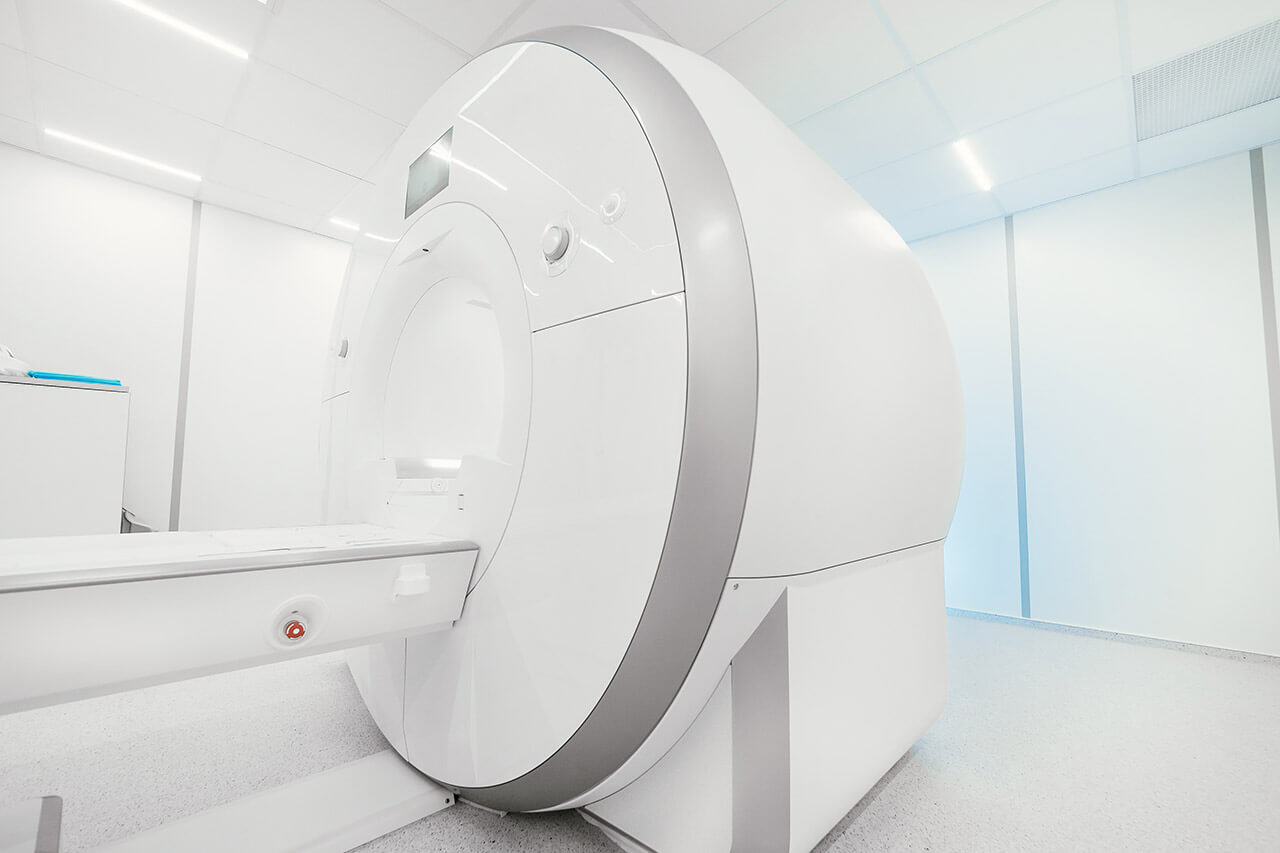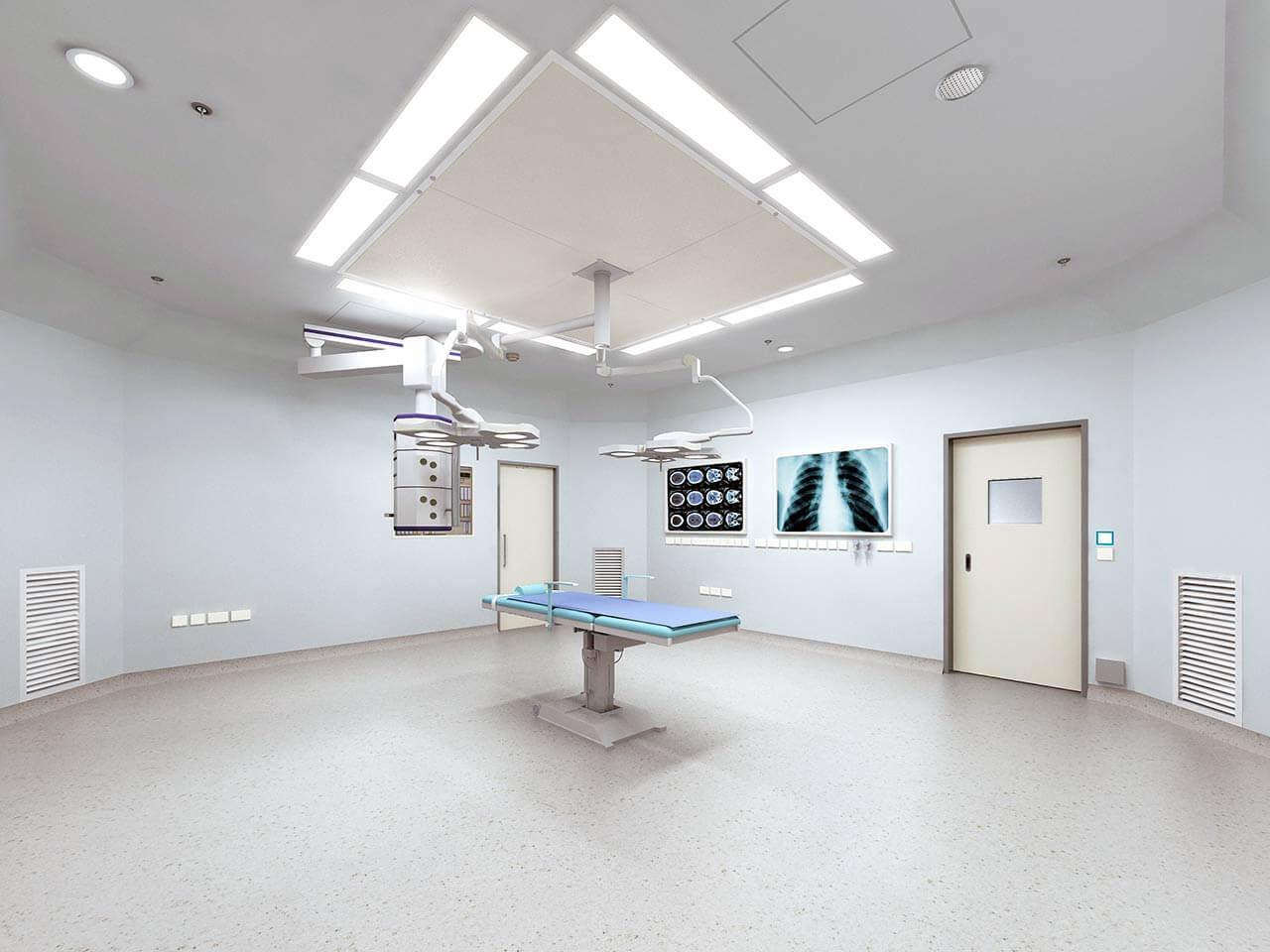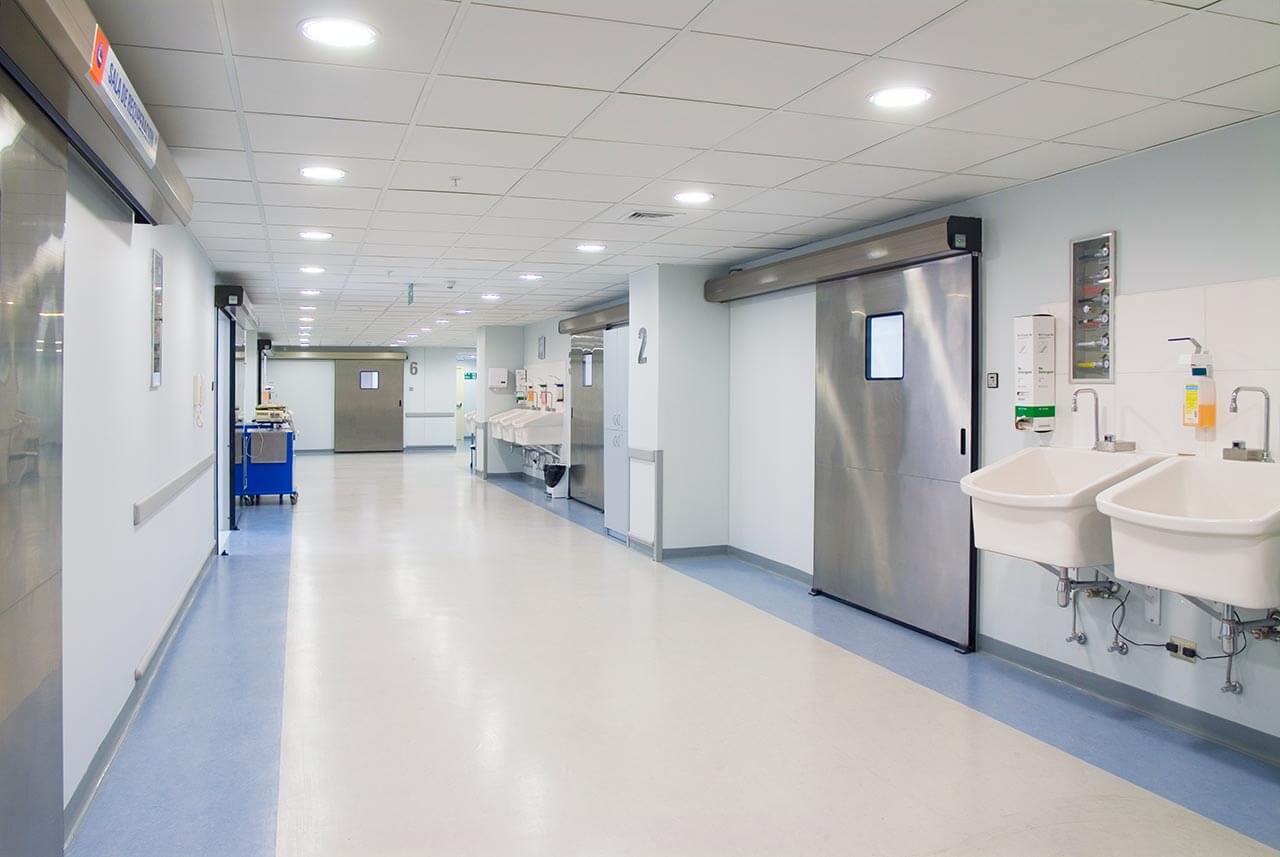
The program includes:
- Interview with doctor, medical history taking
- general clinical examination
- vascular system assessment
- extended blood test:
- thyroid function test (TSH)
- liver and pancreas function tests (ALT, AST, GGT, AP,
bilirubin, CHE, LDH, Lipase) - kidney function test (creatinine, urea)
- mineral metabolism analysis (Na, K, Ca, Mg)
- lipid metabolism (HDL/LDL, cholesterol, triglycerides Lip(a),
homocysteine) - blood coagulation analysis (aPTT, PT, INR)
- metabolic status (uric acid, glucose)
- inflammatory markers (CRP, ESR)
- abdominal and pelvic ultrasound
- doppler of the abdominal cavity blood vessels
- resting ECG
- exercise ECG
- lung X-ray examination
- interview and recommendations after examination
- written statement
Required documents
- Medical records (if availale)
Service
You may also book:
 BookingHealth Price from:
BookingHealth Price from:
About the department
The Department of Gastroenterology and Hepatology at the Eichsfeld Hospital Heilbad Heiligenstadt provides the full range of preventive, diagnostic and therapeutic services in the areas of its specialization. The team of doctors of the medical facility admits patients with various gastrointestinal diseases: stomach, esophageal, small and large intestine pathologies. The department also admits patients with liver and biliary tract diseases. Upon admission to the department, a patient with suspected gastrointestinal pathology undergoes comprehensive diagnostics, including laboratory tests, ultrasound and X-ray scans, as well as assessment of the digestive functions. With appropriate clinical indications, doctors also conduct endoscopic diagnostic procedures. First of all, the specialists always consider pharmacotherapy. If, according to the results of the preliminary diagnostics, doctors come to the conclusion that the patient needs more radical measures, an endoscopic intervention becomes the best option. The department's doctors give preference to an individual approach to each patient. During the therapeutic process, they strictly observe current clinical protocols. The Head Physician of the department is Dr. med. Bernhard Sänger.
Bowel diseases are most common in the clinical practice of doctors of the medical facility. The specialists offer advanced treatment methods for patients with inflammatory bowel disease (Crohn's disease and ulcerative colitis), irritable bowel syndrome, bowel polyposis, acute intestinal infections, etc. Such complaints as abdominal pain, flatulence, diarrhea or constipation, nausea or vomiting may indicate that the patient has bowel problems. In this case, the patient requires comprehensive diagnostics with laboratory tests (complete blood count and biochemical test, urinalysis and stool test) and colonoscopy, including capsule or virtual (depending on the particular clinical case). Colonoscopy allows the doctor to assess the condition of the mucous membrane and lining of the intestine. During the procedure, the specialist inserts a thin flexible endoscope with a built-in video camera into the intestine, which transmits images of the inner walls of the intestine to a large screen at multiple zooming. Thus, the doctor can detect neoplasms, inflammatory processes and other pathological changes in the intestine. If required, resection of polyps and even malignant bowel tumors at the early stages is immediately performed. Diagnostic colonoscopy takes no more than 30 minutes. If additional therapeutic manipulations are carried out, then the procedure will take a little longer. For maximum patient comfort, colonoscopy can be performed under general anesthesia.
Of particular interest to the team of the department's gastroenterologists is the diagnostics and treatment of stomach diseases: gastritis, peptic ulcer, stomach polyps, infectious diseases, gastrointestinal bleeding, etc. The diagnostic protocol for the above mentioned diseases includes the full range of laboratory tests (complete blood count and biochemical test, urinalysis and stool test), ultrasound and X-ray scanning, as well as endoscopic diagnostics (gastroscopy) in appropriate clinical indications. Gastroscopy is performed using a special instrument (gastroscope), which is inserted into the stomach cavity. The insertion of the gastroscope is painless, however, due to the appearance of the gag reflex, it can cause some discomfort. The duration of the procedure is 3-5 minutes, but if the patient requires a biopsy or an additional medical manipulation, gastroscopy takes longer.
The department also admits patients with liver and biliary tract pathologies. The focus is on the treatment of viral hepatitis, cirrhosis and gallstone disease. At the stage of diagnostics, the patient first of all undergoes laboratory tests and ultrasound scanning. If the data obtained is not sufficient to make an accurate diagnosis, the attending physician prescribes additional tests. The treatment is usually based on drug therapy. The optimal drug therapy regimen is developed exclusively on an individual basis.
The department's range of medical services includes:
- Diagnostics and treatment of gastric, esophageal and duodenal diseases
- Gastritis
- Peptic ulcer
- Gastric polyps
- Gastroesophageal reflux disease
- Esophageal diverticulum
- Barrett's esophagus
- Diagnostics and treatment of bowel diseases
- Bowel polyps
- Diverticular disease
- Inflammatory bowel disease: ulcerative colitis and Crohn's disease
- Gut dysbacteriosis
- Coeliac disease
- Ischemic colitis
- Irritable bowel syndrome
- Acute intestinal infections
- Diagnostics and treatment of liver and biliary tract diseases
- Chronic viral hepatitis
- Cirrhosis
- Gallstones
- Other diseases
The department's diagnostic and therapeutic options include:
- Diagnostic services
- Laboratory tests: complete blood count, biochemical test, urinalysis, coprogram, Helicobacter pylori test, etc.
- Instrumental examinations: ultrasound, endosonography, radiography, etc.
- Endoscopic examinations: gastroscopy, colonoscopy, rectoscopy, rectosigmoidoscopy, etc.
- Therapeutic services
- Pharmacotherapy
- Endoscopic procedures
- Therapeutic colonoscopy (for example, to remove polyps, malignancies at the early stages)
- Therapeutic gastroscopy (for example, to remove polyps, to stop gastrointestinal bleeding)
- Percutaneous transhepatic biliary drainage
- Other diagnostic and therapeutic options
Photo of the doctor: (c) Eichsfeld Klinikum
About hospital
The Eichsfeld Hospital Heilbad Heiligenstadt is a reputable medical facility, whose patients can undergo high-quality diagnostics and treatment in accordance with European standards. The medical facility is an Academic Hospital of the University of Goettingen, so many local doctors are actively engaged in research activities and can offer patients innovative treatment methods that are available only in leading medical centers in Germany.
The hospital has ten highly specialized departments, which are responsible for the diagnostics and treatment of a specific group of diseases. The hospital provides modern treatment of diseases of the heart, gastrointestinal tract, musculoskeletal system, female and male reproductive system, as well as diseases in children. The hospital has 352 beds. Patients also receive many medical services on an outpatient basis.
The hospital employs a highly professional team of doctors, each of whom strives to provide the patients with effective, most sparing and safe treatment in a comfortable environment. The specialists are distinguished not only by their successful clinical experience, but also by their approach to treatment – the patient and his health always come first. The doctors and nursing staff are sympathetic to the individual needs and wishes of their patients. The specialists are always ready to help, advise and answer questions of interest.
The hospital is justly proud of its modern technical base. The medical facility has diagnostic rooms with state-of-the-art equipment for laboratory and endoscopic examinations, operating rooms with everything necessary to perform minimally invasive and open surgeries, treatment rooms with advanced laser systems, etc. All this allows for high-precision diagnostics and treatment in accordance with the very latest standards of world medicine.
The exceptional quality of the hospital's medical services is confirmed by the prestigious Cooperation for Transparency and Quality in Healthcare (KTQ) certificate. In addition, an undeniable evidence of the high status of the hospital is the constantly growing number of patients who entrust their health to its doctors.
Photo: (с) depositphotos
Accommodation in hospital
Patients rooms
The patients of the Eichsfeld Hospital Heilbad Heiligenstadt live in comfortable single and double rooms with a modern design. Each patient room has an ensuite bathroom with shower and toilet. The furnishing of the patient rooms includes an automatically adjustable bed, a bedside table, a wardrobe, a TV and a telephone. The patient can connect to Wi-Fi, if desired.
The hospital also offers accommodation in enhanced-comfort rooms. Such patient rooms are more spacious, additionally equipped with upholstered furniture, a safe and a mini fridge. The bathroom of the enhanced comfort rooms has changeable towels and toiletries.
Meals and Menus
The hospital provides its patients with three delicious and healthy meals a day: breakfast, lunch and dinner. Diet meals are provided for each meal. If for some reason you do not eat all the foods, you will be offered an individual menu.
Those patients living in enhanced-comfort rooms are offered a wider range of meals. Fresh fruit is delivered to the room every morning, as well as tea and coffee can be ordered throughout the day.
In addition, the hospital has a cozy cafeteria where one can taste delicious European cuisine, enjoy a cup of tea, coffee or cappuccino with a wonderful dessert.
Further details
Standard rooms include:
Television
During an inpatient stay, each patient can use a telephone, a TV and the Internet. Please inform the medical staff about your desire to use these services at the time of admission to the hospital. The base rate is 1.60 € per day and includes the use of the TV in the patient room.
The Internet is available in almost all patient rooms of the hospital. Reservations are made upon admission to inpatient treatment or in the information department. Access is provided with a password for a fee of 3 € for every 300 MB.
Religion
The hospital regularly hosts Catholic divine services. Other religious services are available upon request.
Accompanying person
Your accompanying person may stay with you in your patient room or at the hotel of your choice during the inpatient program.
Hotel
You may stay at the hotel of your choice during the outpatient program. Our managers will support you for selecting the best option.





